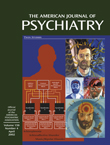Ziprasidone Induction of Hypomania in Depression?
Mr. A was a 43-year-old man with recurrent major depressive disorder that had been treated with partial success with sequential trials of fluoxetine, venlafaxine, buproprion, and lamotrigine. All were discontinued because of side effects and/or lack of efficacy. Mr. A began taking ziprasidone, 20 mg b.i.d., for 1 week, then his dose was increased to 40 mg b.i.d. He began to experience insomnia, waking up at 3:00 a.m. He also reported feeling “really good” and “wide open” and said, “I haven’t had energy like this for 15 years” and that he was “washing dishes and cleaning continuously.” His dose was reduced to 40 mg at bedtime; his insomnia and subsequent euthymia remitted. Mr. A has remained fully recovered.Mr. B was a 31-year-old man with a long history of generalized anxiety disorder, attention deficit hyperactivity disorder, and recurrent depression. He had previously taken nefazadone, sertraline, and buproprion without an improvement in symptoms. He began taking ziprasidone, 20 mg b.i.d., and within 4 days he described feeling “wonderful” and “euphoric.” He had racing thoughts, “great powers of concentration,” and was impatient and irritable with others. After Mr. B had been in this state for 2 weeks, we decreased his ziprasidone dose to 20 mg/day, but he then experienced “profound depression,” which persisted despite ziprasidone discontinuation.Ms. C was a 33-year-old woman with a history of treatment-resistant major depression with panic attacks. She was hospitalized, and her condition was maintained with buproprion therapy, from which she sustained some but not sufficient antidepressant benefit. Ms. C was given ziprasidone, 20 mg b.i.d., and within 10 hours she experienced a marked increase in energy, reported feeling “wonderful,” and was able to be discharged. At home she continued to experience a marked increase in energy and an elevated mood. However, 3 days after starting to take ziprasidone, she experienced severe insomnia followed by a relapse into her previous depressive symptoms and a recurrence of panic attacks. Ziprasidone was discontinued, and risperidone treatment was begun. The dose was titrated to 3 mg/day, which produced mood stabilization (euthymia) and a resolution of panic attacks and insomnia.
Reference
Information & Authors
Information
Published In
History
Authors
Metrics & Citations
Metrics
Citations
Export Citations
If you have the appropriate software installed, you can download article citation data to the citation manager of your choice. Simply select your manager software from the list below and click Download.
For more information or tips please see 'Downloading to a citation manager' in the Help menu.
View Options
View options
PDF/EPUB
View PDF/EPUBGet Access
Login options
Already a subscriber? Access your subscription through your login credentials or your institution for full access to this article.
Personal login Institutional Login Open Athens loginNot a subscriber?
PsychiatryOnline subscription options offer access to the DSM-5-TR® library, books, journals, CME, and patient resources. This all-in-one virtual library provides psychiatrists and mental health professionals with key resources for diagnosis, treatment, research, and professional development.
Need more help? PsychiatryOnline Customer Service may be reached by emailing [email protected] or by calling 800-368-5777 (in the U.S.) or 703-907-7322 (outside the U.S.).

